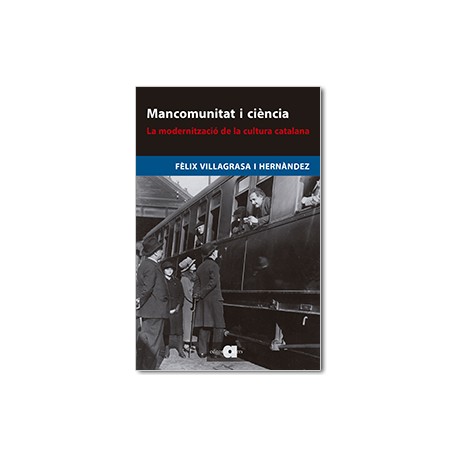No products
Prices are tax excluded
Product successfully added to your shopping cart
There are 0 items in your cart. There is 1 item in your cart.
 View larger
View larger
Mancomunitat i ciència. La modernització de la cultura catalana
978-84-16260-12-6
New
Mancomunitat i ciència. La modernització de la cultura catalana
102 pp.
More info
At the start of the 20th century, the big European states were in full control of the industrial development, urban and imperial, with some social changes that accused the grave convulsion caused by the automatization of the productive systems and for the proletarianization. In the more advanced societies, the frame was found in the nationalisation of the masses. Likewise, the turbulences of the capitalist system couldn’t guarantee the subsistence of the non-owner classes. The contradictions blew because of the World War I, from where derived the Marxists and nationalists’ revolts in Russia and other countries. In this frame the Mancomunitat of Catalonia is borne, a project of modernisation and stabilisation of the Catalan society which was brewing from the apparition of the political Catalanism, from the alliance between regionalists and republicans. On of its most important realisations was the establishment of economic and human resources to improve the scientific and technical quality of higher studies, completing the limited action of Universities, and get the general renovation of applicable knowledge to the economic and cultural fields. The aim was to put the country in symphony with the material and scientific progress of the most developed states. The extra structures that the Spanish institutions weren’t capable of fomenting, all vindicating the necessary power to keep them. The project was stopped by the coup d’état in 1923.
Fèliz Villagrasa i Hernàndez (Barcelona 1964) is a doctor in history by the university of Barcelona. He lives and works in Penedés. He is the author of books like Els generals del 36 (2014), Breu Història de Catalunya (2013), Francesc Xavier Llorens i Barba. La Universitat de Barcelona i el pensament català en el segle XIX (2010), Miedo a la memoria, with Octavio Alberola (2008), Discursos inaugurals de les institucions científiques catalanes a cavall dels segles XVIII i XIX, with Santiago Riera i Tuèbols (2007), Una història de Ràdio PICA. 25 anys a contrapèl (2006) and L’Últim Càtar, with Francesc F. Maestra, (1998). In addition to some articles such as: ‘Ernst Jünger, un segle per a la reflexió i la polèmica’ (L’Avenç, 1999). He has collaborated in the writing of ‘l’Atles del catalanisme’ (2012), ‘L’Ateneu Barcelonès i Barcelona. Un segle i mig d’acció cultural’ (2006), ‘Premsa cultural i intervenció política dels intel·lectuals a la Catalunya contemporània’ (1814-1975) (2005) and ‘L’Escola d’enginyers de Terrassa. Cent anys d’història’ (2005).
Reviews
No customer reviews for the moment.


